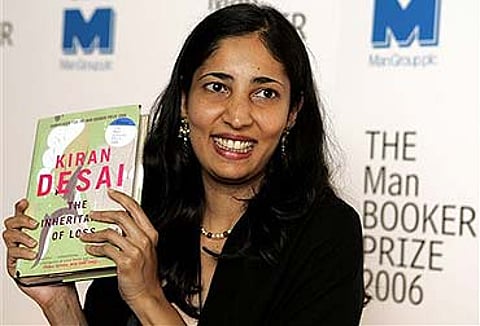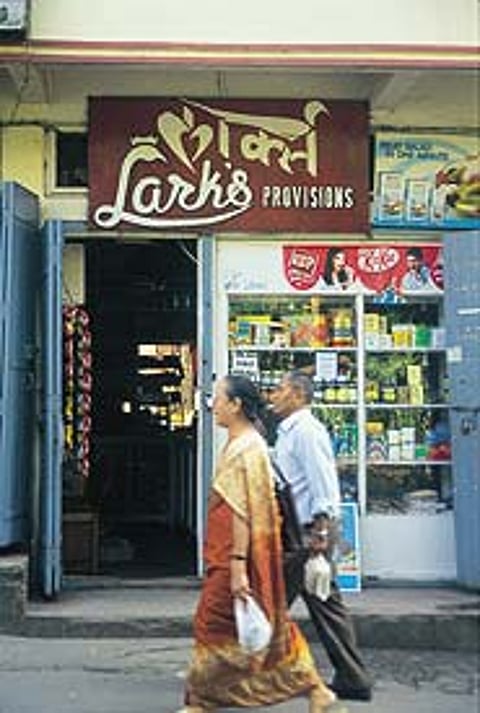Worms In The Cottage Cheese
Kalimpongwallahs, her aunt included, take offence at Desai's dark portrait of their idyll

A major bone of contention is Desai's portrayal of the Gorkhaland agitation that rocked this area in the mid-'80s. The residents vociferously deny that any non-Nepali was beaten up and forced to join the agitation for a separate Gorkha homeland, as Desai describes in her book. Or that there was a communal divide. "That's all hogwash. The Gorkhaland agitation was a totally non-communal one," asserts Sandip Jain, a Marwari businessman, and editor of local fortnightly, Himalayan Times. Actively involved in the agitation, like many other non-Nepalis, he rose to become the president of the Gorkha National Students' Front, student wing of the Gorkha National Liberation Front, which spearheaded the agitation.
"Most of the victims of the agitation were Nepalis. The target was the government, its officials and the CPI(M), not the non-Nepalese," says Bharat Kumar, a third-generation resident of the town, and a trader by profession. Narayan Pal, owner of Apollo Tailors, also takes issue with Desai's book, not least because it refers to his shop as Apollo Deaf Tailors.
Wedged between Sandip's bookstore and Pal's shop is a clinic run by a frail but charismatic lady. Dr Indira Bhattacharjee too has read the book. An autographed copy was mailed to her earlier this year by Desai, who is her niece. But the septuagenarian, who lives alone in Copston, a charming stone-and-wood cottage, is reluctant to talk about the book. "I haven't told people here about my niece, or the book, or that she won an award. The book contains many insensitive things," she says.
School teacher Prabir Gurung explains: "The novel may be fiction, but it is based on Kalimpong and could pass off as non-fiction, what with so many close resemblances to this town and its people. Many people might be offended by the references in the novel, like the one to Apollo Tailors, and the ugly portrayal of this town. So, this lady (Bhattacharjee) wants to distance herself from it."
"Oh, why did she have to interject 'deaf' in Apollo Tailors? That's bad," says Bhattacharjee, as if on cue.

Kalimpong revolves around its Main Road, a lively promenade lined with shops selling everything from Chinese apparel to Tibetan trinkets and where people—both young and old—roam about in trendy clothes, catching up on the local gossip before melting away to cosy drinking holes. A short distance from the Main Road, Lark's general store (mentioned in the novel) still sells cottage cheese and lollypops. Was Father Andre Butty, the Swiss missionary who started a dairy cooperative called Swiss Welfare Dairy in the 1950s and made Kalimpong famous for its cheese and lollypops, a homosexual, as Desai hints? Again, it's a view the locals disagree with. "Such false references to people, especially prominent people who have done a lot for Kalimpong, is tasteless," says Wg Cdr Rao gravely.
On a hill near the shops is the charming two-storey cottage where Desai would've spent some of her childhood. With its pretty garden and grand view of the Kanchendzonga range, the house was built by Desai's parents in the late '70s. "They liked Kalimpong and wanted to settle down here," says Bhattacharjee.
Chomiomo, as the house was called, plays a pivotal role in the novel. Named so after a mountain range, it's been rechristened Cho Oyu in Desai's novel, and is home to its protagonist Sai and her grandfather, Jemubhai Patel.
Kiran and her mother, writer Anita Desai, who is Bhattacharjee's sister, came to Kalimpong in 1983 to live here, and Kiran was admitted to St Joseph's Convent. "But they left after a few months," says Bhattacharjee. "My sister couldn't adjust." Had they remained, there might not have been this big divide between Desai's view of the town and that of its residents. Perhaps she would not have seen Kanchendzonga glowing a "pornographic pink", but as they see it—a holy, gold-capped peak.
Tags